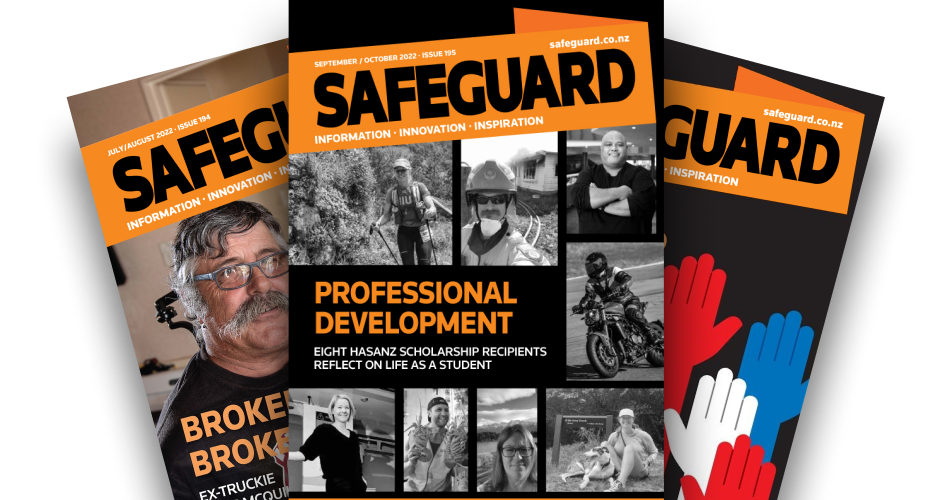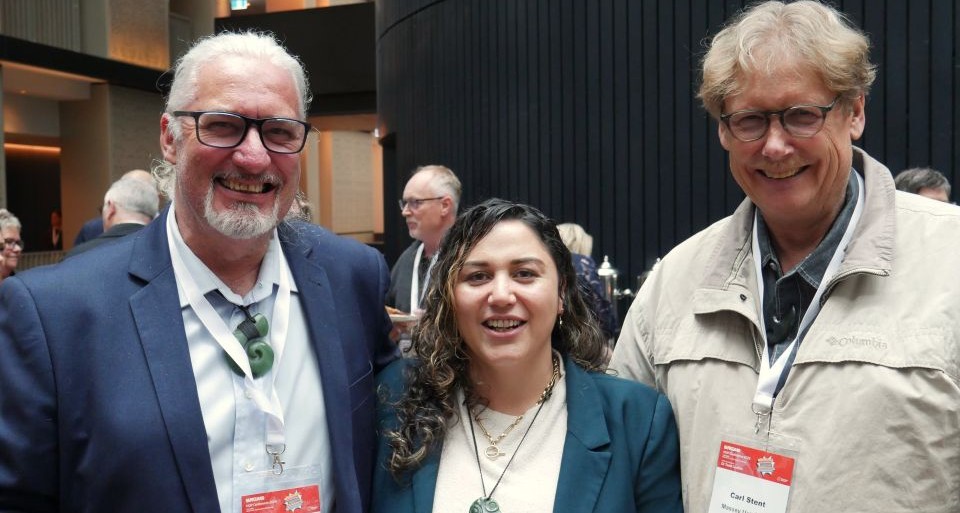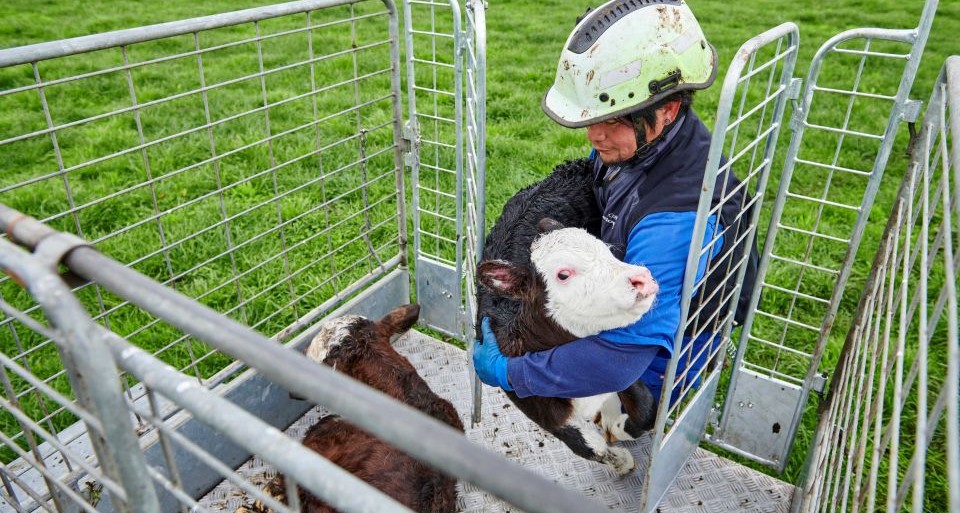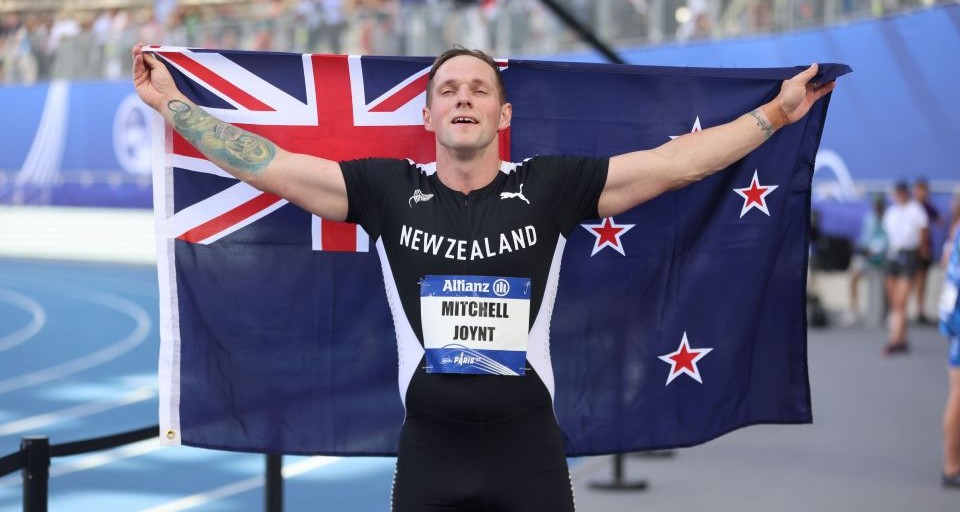It was the hallway conversations that surprised Neroli McDougall most.
A senior HR business partner at Taranaki-based energy provider Firstgas Group, when McDougall reshaped a traditional wellbeing programme to include pretty much any life issue that might impact the organisation’s 400 people she wasn’t expecting to be stopped in the corridor by workmates wanting to share their personal stories.
“I had an older guy come over and ask me about his KiwiSaver fund. He was so appreciative when I said I’d put him in touch with a financial coach.
“Another guy – a real blokey bloke – talked about how he’d had a really tough time after an injury.
“These sorts of conversations just keep happening. The amount of people who are now sharing with each other – and with me – about really personal things just warms my heart.”
McDougall came to Firstgas in 2019 looking to make a difference. During more than a decade working in HR and learning & development in both Australia and New Zealand she’d recognised the huge impact that mental wellbeing – good and bad – can have on individuals, workplaces, families and communities, and was after a role where she could bring positive change.
“From the moment I had my interview here I thought: ‘This feels like the right place.’”
A bold proposal
At the time, however, the Firstgas Group’s wellbeing programme was focused on physical health risks. McDougall thinks there was some initial concern in the executive team when she told them of her vision to expand it into something more holistic and daring.
The plan was for a programme that would cover a broad range of topics – including the difficult ones like addictions and suicide – using external providers to deliver appropriate tools and training for workers, their families and, ultimately, the wider community.
It was a bold proposal but McDougall’s enthusiasm and expertise proved enough to convince the executive.
After verifying that the organisation’s support networks, both formal and informal, were equipped to cope with those who might need extra support, she was given the go-ahead.
It was big job. McDougall wasn’t happy to simply create a schedule and sign up external providers. She needed to be confident she had the right people delivering the right content, in ways that employees and their families would be able to access. Fortunately she found plenty of supportive people willing to give things a go.
“I spent a lot of time chatting to different providers, getting some custom content into their programmes so they’d hit the mark with our people, then trialling it, getting feedback, and helping it evolve.”
She also arranged for multiple delivery channels to ensure anyone who wanted to participate in a session would have ready access.
“Our people are all round the country, including a lot in the field, so we need to use as many delivery mediums as possible.”
Launching Got Your Back
Got Your Back was shaped around the four wellbeing pillars of Te Whare Tapa Whā.
“The idea is to focus on one pillar each quarter, with organised activities around that, but also have capacity to do something a bit more reactive – to be able to set up something from a different area of wellbeing to respond to what’s going on in the workplace.”
By early 2020 McDougall was counting down to an official launch scheduled for April.
“I’d planned to ease people in with a nice safe topic for the first session, and picked retirement planning because everyone’s going to retire, and it was a good one for encouraging people to bring their partners along.”
Then came Covid, and just days short of the scheduled launch McDougall found herself having to do some fast thinking. Fortunately the flexibility she’d always intended the programme to have proved itself admirably, and the organisation was able to mark day one of the level four lockdown in late March with a well-attended online session on resilience, led by former police negotiator Lance Burdett.
The pre-arranged session on retirement followed right on schedule, and the Got Your Back programme was up and running.
Over subsequent months, lockdowns and Covid-related limitations tested McDougall’s agility at times, but also brought unexpected benefits.
Providers and participants who might previously have been uncomfortable with online communication had to adapt quickly and, with much of the workforce home-based, whānau involvement in sessions became not only easier but almost inevitable.
“Having kids climbing on us or a dog barking has become kind of normal now, even when we’re not locked down.
“A big chunk of our office staff still work from home so we get to see all that, and we love it.
“We know the names of all their children – and their pets too. They’re part of our Firstgas whānau.”
Huge range of topics
Since the launch Got Your Back has delivered support, information and training on an eclectic range of topics, from melanoma, sleep and money management to addictions, bullying, and teenage viewing habits.
“We aim to get as much variety as possible, and know enough about our people to be able to recognise which topics are likely to be important.
“Our providers are amazing too. We partner with them, and they also know our workforce, which is really helpful.”
McDougall recognises that people may find some topics challenging, but rather than shying away from these areas, takes pains to ensure they’re handled well, with good supports in place.
“One thing that helps is that we don’t mandate any of the training in Got Your Back. People opt in if they want to – and they do.
“It always surprises me when I see the different people who come on our courses.”
One of the programme’s biggest assets, she says, is the strong support from executives and management.
“All our executives have been incredible from the get-go, and their readiness to talk about their own lived experience has been a big part of our success.”
CEO Paul Goodeve regularly hosts the sessions with external providers, and has developed a reputation for being willing to ask the hard questions.
“We always get good uptake for an event when Paul’s going to be there because they know he’ll lead a really interesting conversation.
“During the Q&A he’ll often front for the questions that others may be thinking about but don’t feel ready to ask.
“He’s willing to put himself into a vulnerable place, and that really helps everyone else.”
Many managers too are active supporters of Got Your Back, and in the recent school holidays the wife and children of one branch manager set up and judged an online Lego challenge. “That sort of engagement from whānau makes a very big difference.”
Agile responses
Alongside the scheduled activities there’s an ongoing variety of events set up in response to specific situations. Last year an enquiry from a manager who’d lost two friends to suicide resulted in a tailored organisation-wide suicide prevention workshop with a specialist provider, while in recent months there have been sessions addressing cost of living issues.
“We’ve been offering information on things like shopping smarter, making healthy snacks on a budget, and how to make sure your KiwiSaver is on track.
“There’ve also been some bereavements in the organisation, so we did a 10-minute video – what we call a micro bite – on how to support people through loss.
“If there’s something happening in the business we’ll definitely respond to it.”
Going beyond the company
Tangible recognition of the programme’s value came with the executive’s decision to grant two additional days leave – known as Got Your Back days – each year.
These can be taken at any time of year, and used in any way that contributes to the worker’s wellbeing.
“Some people who are parents simply spend the days by themselves because they spend their all annual leave with their whānau.
“Others choose to do something as a group. In September some of us took part in doing maintenance work for Riding for Disabled in Taranaki, which is one of the charities we sponsor.”
The organisation’s ongoing relationship with these charities is soon to expand, with McDougall in the initial stages of a new initiative that will give them access to many of Got Your Back’s key resources.
“We’re working on what the organisations look like and what their volunteer profiles are so we can work out what sort of training will be useful for them.
“I’ve always believed that we would make the most impact as an organisation if we went beyond ourselves, so this is absolutely what I’ve been wanting to do from the get-go.”
She admits the job has been – continues to be – a learning curve, but says she’s thankful to be able to make a difference
“So many of our people have opened up and shared things that may have been a burden for them that we would otherwise never have known about.
“If, by creating a space to have those conversations, we can lift that burden a bit, we need to do it. It’s the right thing.”




